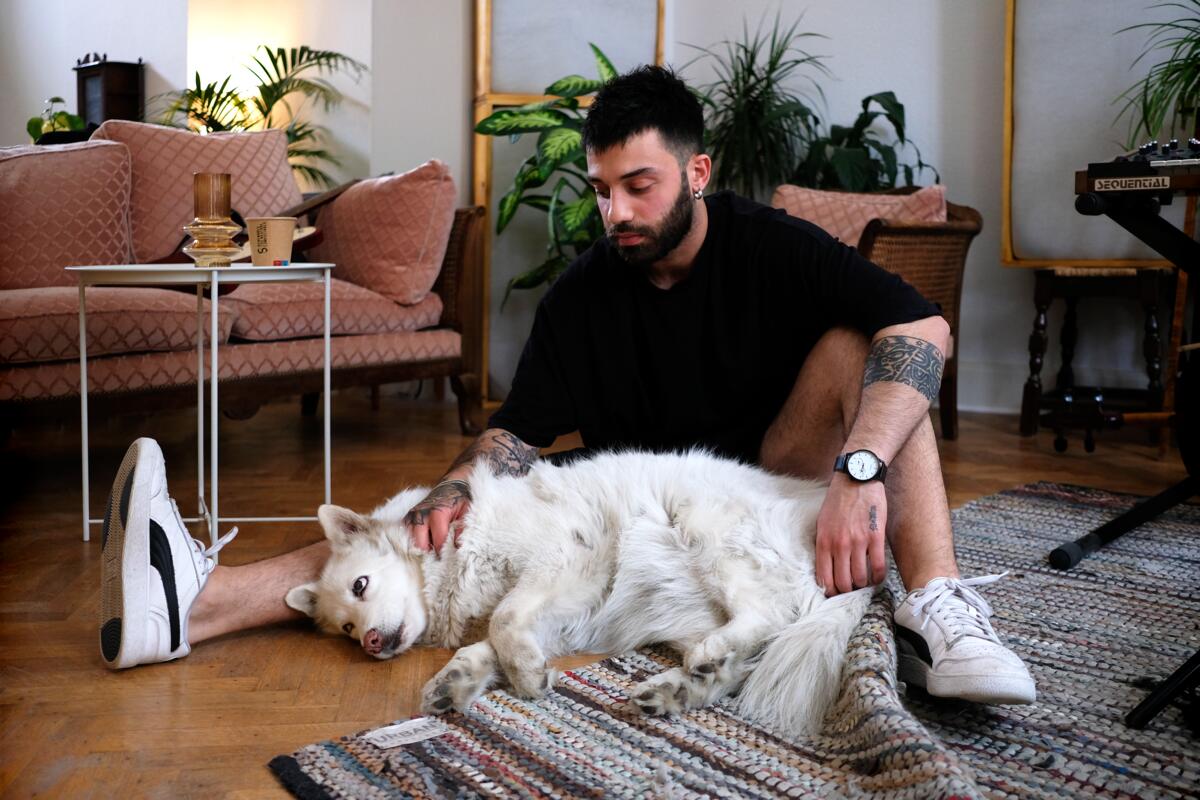Colombian refugee's love of wine helps his integration in Brazil
Colombian refugee's love of wine helps his integration in Brazil

RIO GRANDE DO SUL, Brazil, May 10 (UNHCR) - It's a good thing that Ricardo* has always been a wine lover as the Colombian refugee's hobby has helped him land a plum job in the hospitality industry in southern Brazil.
The former policeman has made the most of his opportunities since arriving five years ago in Rio Grande do Sul state, where he is one of almost 250 resettled refugees - mostly from Colombia and the Middle East. Unlike, Ricardo, many of these urban refugees struggle to get by and need help from UNHCR partners, such as the Associação Antonio Vieira (ASAV).
Ricardo has done much better than most of Brazil's urban refugees; he manages a popular bar in a tourist town (which cannot be named for protection reasons) in the state. He rents a three-bedroom apartment, drives his own car and is married to a Brazilian woman, who teaches at a primary school after taking their baby daughter to a local kindergarten.
He had, however, to start at the bottom - difficult for someone who had built a good career in the southern Colombian province of Caquetá, where he took part in government-driven efforts in the late 1990s to end years of conflict. When this process failed, his life was in danger and Ricardo fled to nearby Ecuador, where he was recognized as a refugee in 2004.
A year later he was resettled in Rio Grande do Sul, where he decided to learn Portuguese before looking for a job. He received assistance and support from UNHCR and the ASAV in a town influenced by Italian and German settlers and a far cry from his Amazonian home region.
But Ricardo had been an amateur oenologist in his home country and he used this to his advantage. After getting up to scratch with his Portuguese, and feeling comfortable in his new home, he got a job as a waiter in a big hotel. In his spare time, he trained to become a qualified sommelier (wine waiter), and he also met his future wife there.
Impressed by his dedication, skill and leadership qualities, his employers soon promoted Ricardo to become a maître d'hôtel. The head of a local social organization, meanwhile, asked him to set aside some of his spare time to train waiters about wines and how to deal with customers.
During one of these training courses, he was invited by a businessman to head a popular downtown bar, "Los Gatos,"* where the in-crowd go to drink, eat and dance.
Ricardo works six days a week - with Monday off - from 4pm till late. Ricardo is in charge of a team of 29 waiters, six chefs and four cashiers. They really earn their daily pay in a hot spot that gets more than 600 clients a night.
"A job is everything. Without a wage, it is impossible for anyone to become self-sufficient and integrate with the host community," stressed Ricardo, who was proud of his achievements since arriving here.
Self-reliance is a top priority for most of the integration projects that UNHCR organizes for urban refugees in Brazil, which hosts almost 4,500 recognized refugees from more than 70 nationalities, according to official figures. And Rio Grande do Sul state hosts most of the resettled refugees.
The UN refugee agency and its partners help refugees to find employment or to start their own businesses. UNHCR also works with the Ministry of Labour, other state authorities and the private sector to help refugees get jobs. UNHCR and a human resources company recently launched a data base with the CVs of refugees - mostly in Sao Paulo - that can be accessed by companies looking for staff. Some refugees have already been offered work.
UNHCR tries to make sure that all refugees and asylum-seekers have access to Portuguese language classes, professional courses and micro-credit programmes. Brazil's refugee legislation also guarantees the issuance of work permits and ID cards, which are essential for finding employment.
"A paid job is a powerful tool for integration," Andrés Ramirez, UNHCR's representative in Brazil, stressed. "More than half of the refugees under our mandate worldwide reside in cities and towns, which are thus legitimate places for refugees to enjoy their rights," he added.
Meanwhile, back in "Los Gatos," Ricardo looked for a special bottle of wine in the cellar. When he found the right vintage, he turned to UNHCR with a big smile. He had finally found his metier. "Here in Brazil, I feel enriched and appreciated for my professional skills," he sighed happily.
* Names changed for protection reasons
By Luiz Fernando Godinho in Rio Grande do Sul, Brazil









